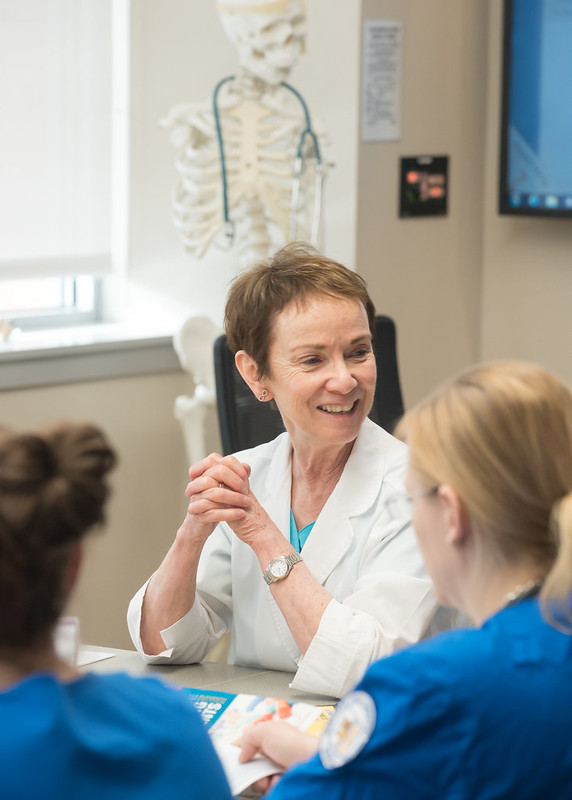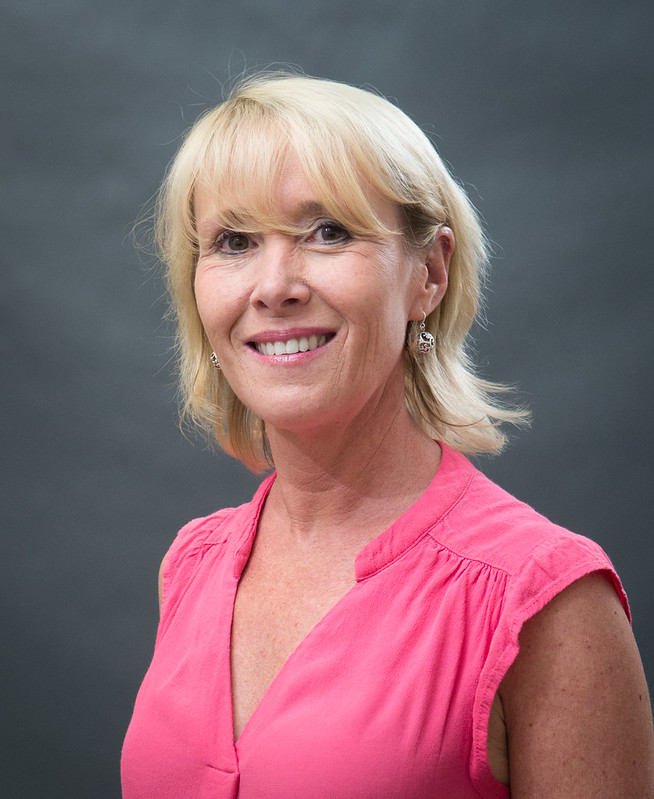Professors Save Students Thousands of Dollars by Developing Free Course Materials
Northern Essex Community College professors are more than familiar with the content of the Learning Strategies for Success in Healthcare (HES102) course. They were among the original group that developed the class. So, when the time came to reexamine the required materials for the course, it was not surprising the Dean of Health Professions tapped them to help.
“In 2013, we started using a custom commercial textbook that allowed us to pick and choose chapters from different books,” says Hamidiani. “But that book started to get old, and we realized we would need to shift to something more relevant to our students.”
They started the process right before the pandemic but had to shelve it to prioritize adapting the class to an online format. When they were ready to revisit the textbook search in 2022, a new possibility had emerged. CARES Act funding was available to support the college’s broader efforts to make education more equitable. Sue Tashjian, NECC’s coordinator of instructional technology, was encouraging faculty to apply for funding to adopt, adapt, and create open educational resources (OER). These materials, or OER, would replace costly textbooks and be available to students online for free.
“It seemed overwhelming to me,” reflects Kane at the thought of creating their own materials. “But we worked as a group. Sue helped narrow things down for us, which made it seem doable.”
“We met together to decide how we would tackle it. And once there was a development shell, we could become consistent in how we looked at it,” Marquis says of starting the process.
Soon, the trio got in a groove and divided the work into sections, each taking a part. They would then review and edit each other’s work, always considering the student’s perspective. And by the summer of 2023, just about a year after they started, the open course was ready for its test run.
There are typically seven or eight sections of HES102 each semester. Hamidiani, Kane and Marquis decided to pilot the open course with just their three sections this fall. That way, they could make edits or adjustments as needed. But so far, they’ve required very few.
“It actually seems like students are reading more and are more engaged than the previous textbook,” says Hamidiani. “I think the reading is more relative to them; it seems to the point.”
“And,” continues Kane, “we found sources that fit better with the materials and are more current. We can update it easily if we find other sources. You can’t do that with copyrighted materials from a traditional textbook.”
Students also appreciate the considerable savings. The previous textbook cost about $100. With as many as 175 students taking the course each semester, “it’s a win-win for everyone,” says Marquis.
The open course will be available for any faculty teaching HES102 starting this winter intersession.
“Working with the Learning Strategies faculty has been a very positive experience for me. Day-one access and cost savings are major advantages of OER when it comes to promoting equity in education – especially for low-income students,” says Tashjian. “It is rewarding to see faculty become energized and enthusiastic about creating and customizing their course content to meet the needs of their students. This exemplifies the true potential and value of OER.”
Tashjian is also the Massachusetts Department of Higher Education OER Advisory Council co-chair. She and Dean of Business and Professional Studies, Jody Carson, introduced OER to the college in 2014 with a textbook task force. Since then, Tashjian estimates that free and low-cost course materials have saved over 30,000 NECC students $5 million on textbooks.
Tashjian continues to work with faculty to adapt courses to use OER. Students can find these open courses by using the course search tool advanced search and selecting the check box for “Low-cost/No-cost textbooks” under Free Access. To learn more about OER at NECC, visit the webpage or contact Tashjian at stashjian@necc.mass.edu.









